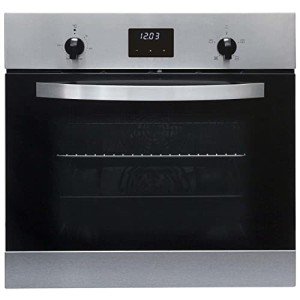The Comprehensive Guide to Sales Ovens: Understanding Their Importance, Types, and Best Practices
Sales ovens, a category of industrial cooking devices, are key players in the culinary and foodservice market. These home appliances, created to prepare food in large quantities effectively, are vital in restaurants, catering services, and other food facilities. This article explores the importance of sales ovens, their types, and best practices for selecting and utilizing them efficiently.
What Are Sales Ovens?
Sales ovens, broadly specified, are cooking devices used primarily in business cooking areas to prepare, bake, or heat different food items at scale. Their style enables them to deal with greater volume cooking compared to standard domestic ovens. Provided the nature of food service, sales ovens typically incorporate advanced innovations that promote speed, effectiveness, and even cooking.
Importance of Sales Ovens in the Food Industry
Sales ovens play a pivotal function in food production for many reasons:
- Efficiency: Sales ovens can cook food more rapidly and uniformly than conventional ovens, enabling chefs to prepare meals in less time.
- Consistency: With accurate temperature controls, sales ovens make sure that the food is cooked uniformly every time, preserving quality throughout countless servings.
- Flexibility: Many sales ovens can handle numerous cooking approaches including baking, roasting, broiling, and even steaming, making them suitable for varied menus.
- Energy Savings: Modern sales ovens are typically created to be energy-efficient, lowering operational costs for services.
Kinds Of Sales Ovens
The market provides a range of sales ovens, each fit for specific cooking requirements and kinds of food. Here are the most typical types:
| Type of Oven | Description | Best For |
|---|---|---|
| Convection Ovens | Employ a fan to circulate hot air, making sure even cooking. | Baking and roasting products. |
| Combi-Ovens | A mix of convection and steam cooking, supplying versatility in cooking approaches. | Varied menus needing steaming and baking. |
| Conveyor Ovens | Use a moving belt to continuously prepare food, ideal for high-volume operations. | Quick food and pizza. |
| Deck Ovens | Feature separate compartments (decks) that can be individually managed, providing high performance. | Craftsmen bread and pastries. |
| Rotisserie Ovens | Developed to gradually roast meat on a spit, providing tender and juicy outcomes. | Roasted meats. |
Selecting the Right Sales Oven
Selecting the suitable sales oven for a particular company requires factor to consider of several aspects:
- Volume Needs: Assess the volume of food that requires to be prepared. Higher volume implies selecting conveyor or combi-ovens.
- Menu Diversity: Understanding what type of dishes will be prepared can direct the selection process. For instance, a bakery might require a deck oven, while a diner may take advantage of a stove.
- Area Availability: Measure kitchen space to ensure the ovens fit properly and have required ventilation.
- Spending plan: Commercial ovens can differ significantly in rate, so establish a budget plan that considers long-term operational savings.
- Energy Efficiency: Opt for ovens that have energy rankings to keep energy costs manageable.
Best Practices for Using Sales Ovens
Successfully running a sales oven involves more than simple usage. Here are some best practices to bear in mind:
- Regular Maintenance: Schedule routine maintenance to tidy and examine the performance of the oven. This guarantees longevity and performance.
- Pre-heating: Always pre-heat the oven to the wanted temperature level before placing food inside for consistent cooking results.
- Use Thermometers: For accuracy, use an oven thermometer to guarantee that temperatures remain consistent, particularly for baking.
- Follow Cooking Times: Adhere to advised cooking times based upon the type of food being prepared. Changes may be needed for different ovens.
- Prevent Overcrowding: Ensure enough space around food items in the oven to permit correct air circulation.
The Future of Sales Ovens
As innovation advances, so do the capabilities of sales ovens. Developments such as smart technology, energy-efficient designs, and enhanced safety functions are ending up being more popular. These improvements assure to enhance cooking effectiveness while also satisfying sustainability goals.
Frequently Asked Questions about Sales Ovens
Q1: How do I clean my sales oven?
A: Regular cleaning includes getting rid of any food particles, cleaning down surface areas with non-corrosive cleaners, and following specific cleaning recommendations from the maker.
Q2: What's the lifespan of a business oven?
A: Typically, a well-maintained industrial oven can last anywhere from 10 to 20 years, depending upon use and upkeep.
Q3: Can sales ovens be used for baking?
A: Yes, numerous types of sales ovens, specifically convection and deck ovens, are particularly developed for baking a variety of products.
Q4: Are there energy-efficient alternatives for sales ovens?
A: Yes, a number of makers provide energy-efficient designs that lower energy intake without compromising performance.
Q5: How frequently should I perform upkeep on my sales oven?
A: It's a good idea to carry out routine maintenance checks every month or quarter, depending upon use levels. In addition, a comprehensive evaluation should occur a minimum of yearly.
Sales ovens are vital in the contemporary culinary landscape. Oven Hob to cook big amounts of food efficiently makes them important for restaurants, catering services, and other food establishments. By comprehending the various types, picking the right oven, and adhering to best practices, food service organizations can optimize their cooking processes, boost their offerings, and eventually thrill their clients with outstanding culinary creations.

